Support Us
Since 1979 more than 140,000 animals have been treated by Wildlife Rescue.
Thanks to the support of individuals like you, Wildlife Rescue can provide a lifeline for animals in distress.
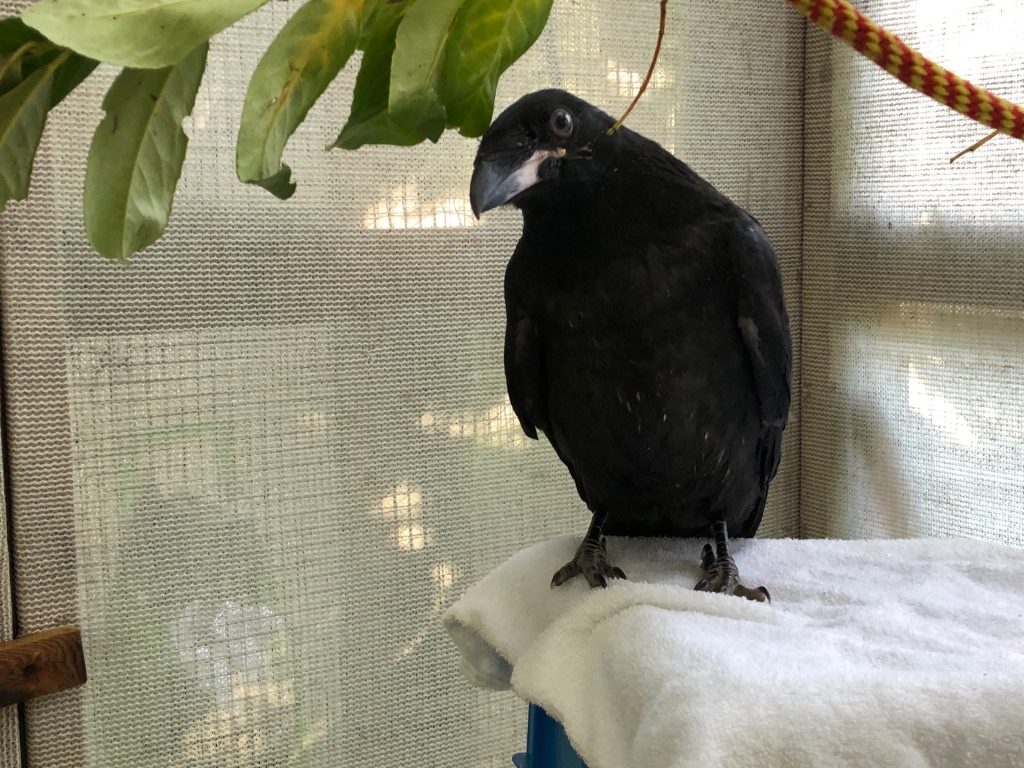
Spring is baby bird season! With an abundance of life outside, it is a great time to go birdwatching and enjoy nature’s busy season!
Recently, a wildlife lover came across a Fledgling Common Raven. The sight of the big beautiful bird caught their attention and they stopped to watch for a while. However, the bird started to concern the individual as it seemed as if the bird may be injured. It was hopping on the ground, unable to fly off so the concerned individual caught the corvid and brought it to Wildlife Rescue.
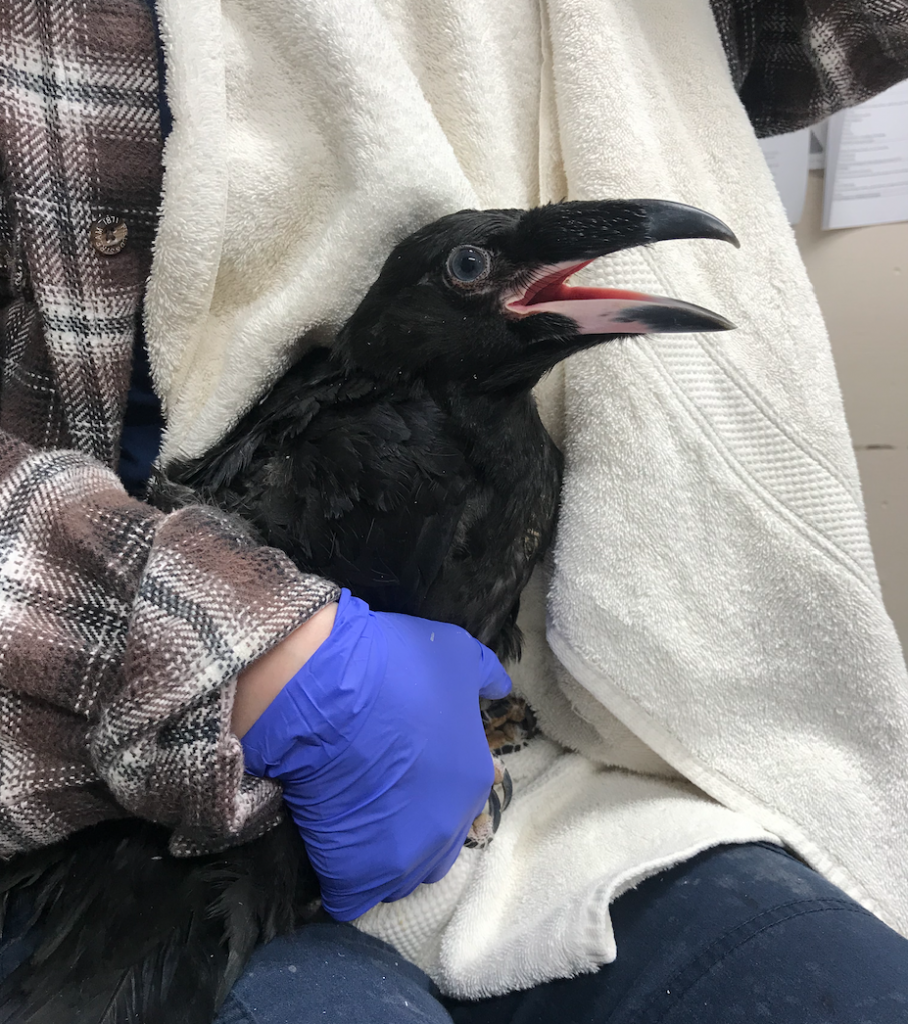
The fledgling Raven receiving a thorough health examination by a Wildlife Technician.
The young Raven was thoroughly inspected by our highly trained Wildlife Technicians. Fortunately, its examination determined that this bird was perfectly healthy! The finder likely just mistook its lack of flying skills for an injury, a common misconception during the Spring.
Fledglings are just learning how to fly; they aren’t equipped with all the skills or flight feathers needed to make it on their own in the wild. They still need their parents to help them build these essential skills and can be on the ground for 1-2 weeks.
If you find a fledgling on the ground, it’s important to stop and observe before intervening. Normal behaviour for fledglings is to be hopping on the ground. The parents are likely nearby as they are still feeding them. Observe from a distance to watch if the parents return. If it is in immediate danger from predators, pets or people, please contact our Support Centre for assistance.
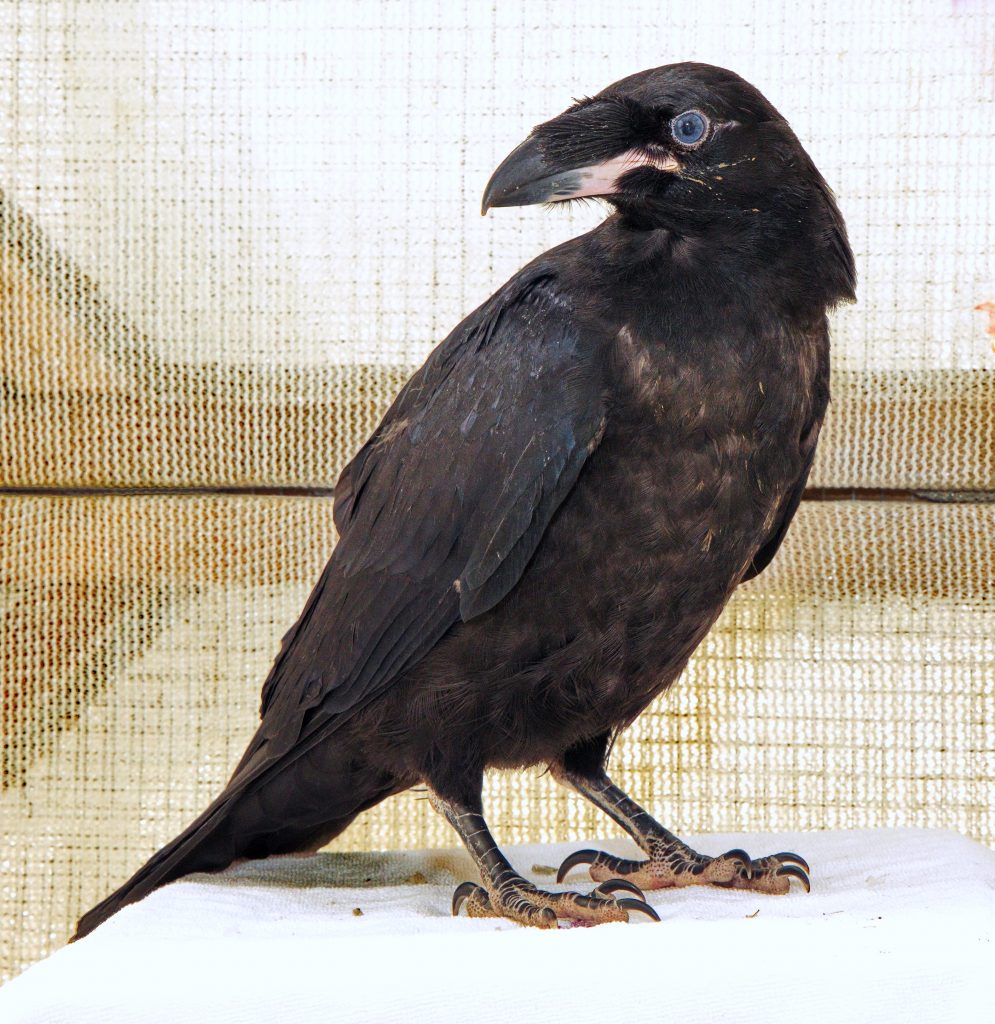
The young Raven spending the night at Wildlife Rescue before being reunited.
As skilled as Wildlife Rescue staff and volunteers are, there is no replacement for the care of parents. Wild animals have the best chance of survival and gaining the necessary life-skills with their parents in nature.
Corvids are highly intelligent birds, who have strong social bonds with their family, thus a high risk of imprinting during developmental stages of growth. Rehabilitating Corvids is also resource-intensive, so when we receive uninjured corvids, the best plan of action is to reunite them with their parents as soon as possible!
Our Support Centre team worked hard with our partners at the Richmond SPCA and Richmond Olympic Oval to locate the nest and parents, and arrange a plan to reunite the Corvid family.
Our experience rescue volunteer, Cathy, was employed and she rushed over to pick up the bird and bring it home! When Cathy arrived on site where the nest was known to be, she heard and saw the parents right away – a great sign! After assessing the situation and determining a safe location, she released the fledgling onto a branch below the nest.
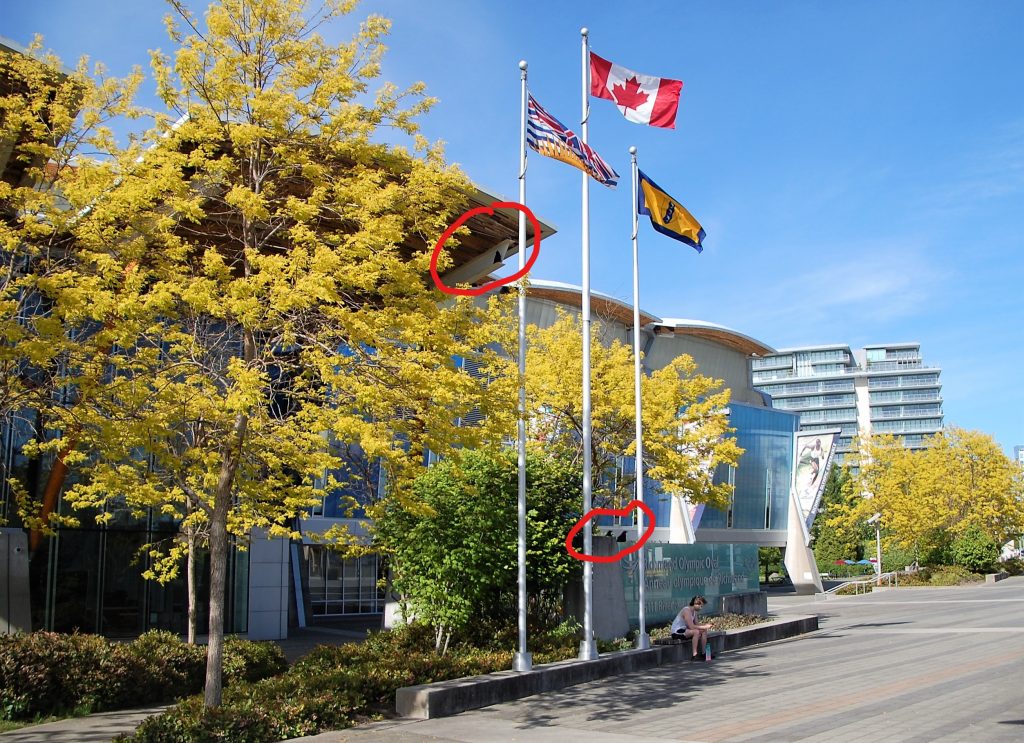
The parents perched in the rafter above, with the two young siblings perched below on the sign.
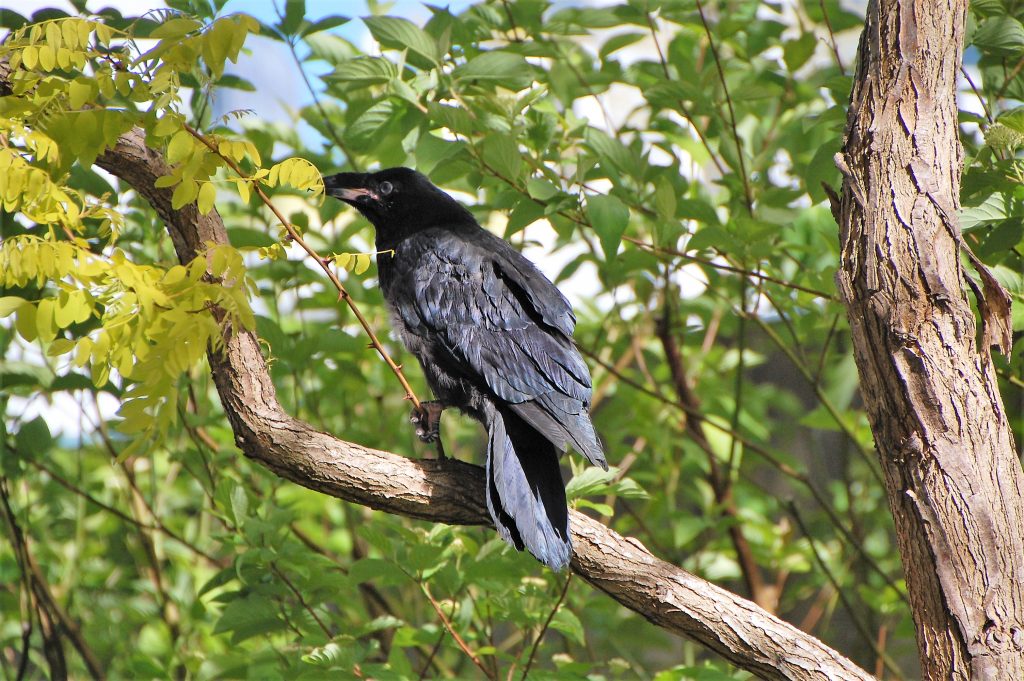
The young released Raven perching on a branch under the nest.
Almost immediately, two young Ravens flew down to investigate. They perched nearby their reunited sibling as if to say hello! Meanwhile, the parents were perched above in the rafters carefully watching their young below.
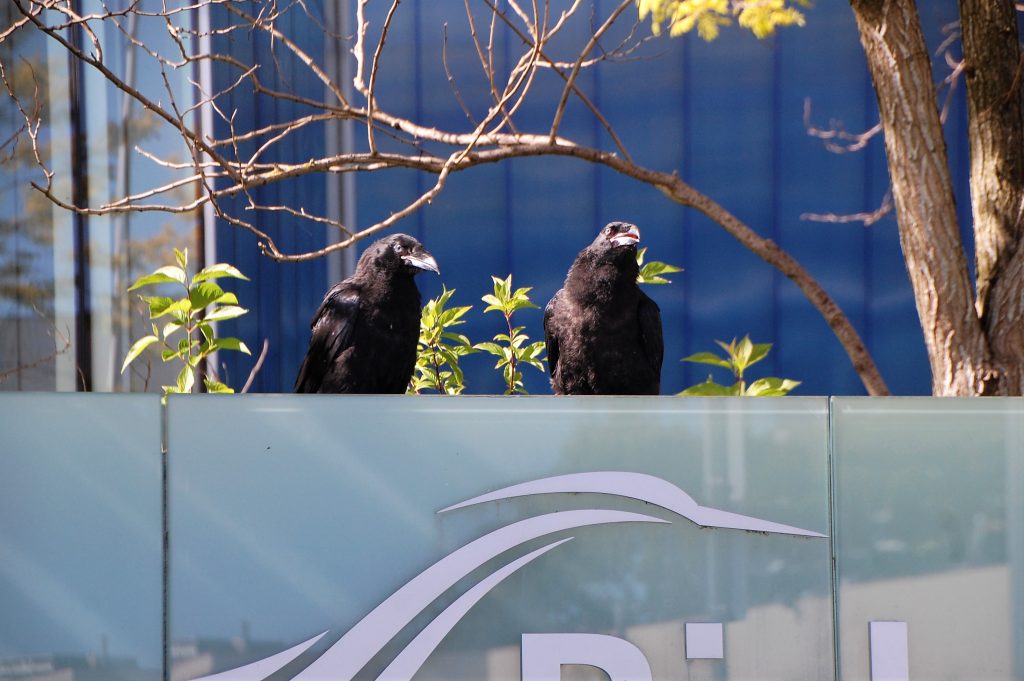
Two young Ravens greeting their reunited sibling!
When rehabilitating Ravens, specially trained Staff wear imprinting gear (a hat with mesh covering the face, and a large robe disguising the human figure), and feed the Raven with a Raven-puppet to imitate their parents feeding. All personnel avoid talking around the Raven to prevent the bird from associating humans with food and care. These birds are very intelligent, curious, and inquisitive, so we provide enrichment and novel foods to keep the bird busy, stimulated, and prevent boredom.
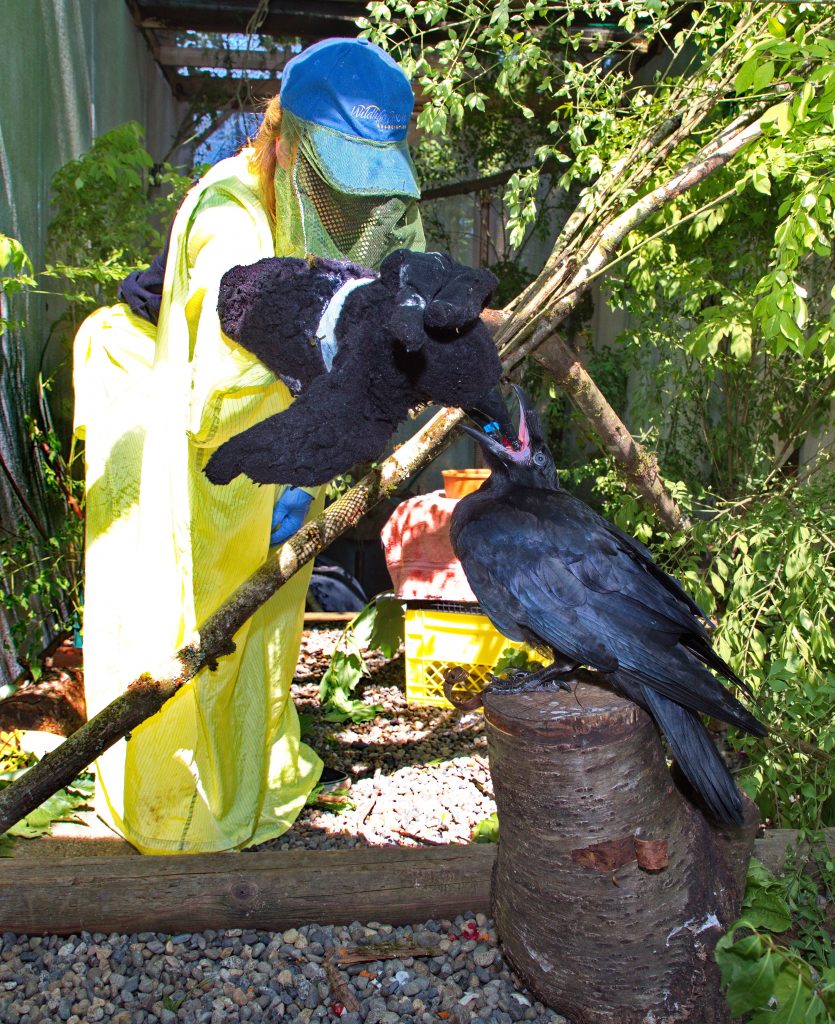
A staff member in imprinting gear feeding a Raven with a puppet!